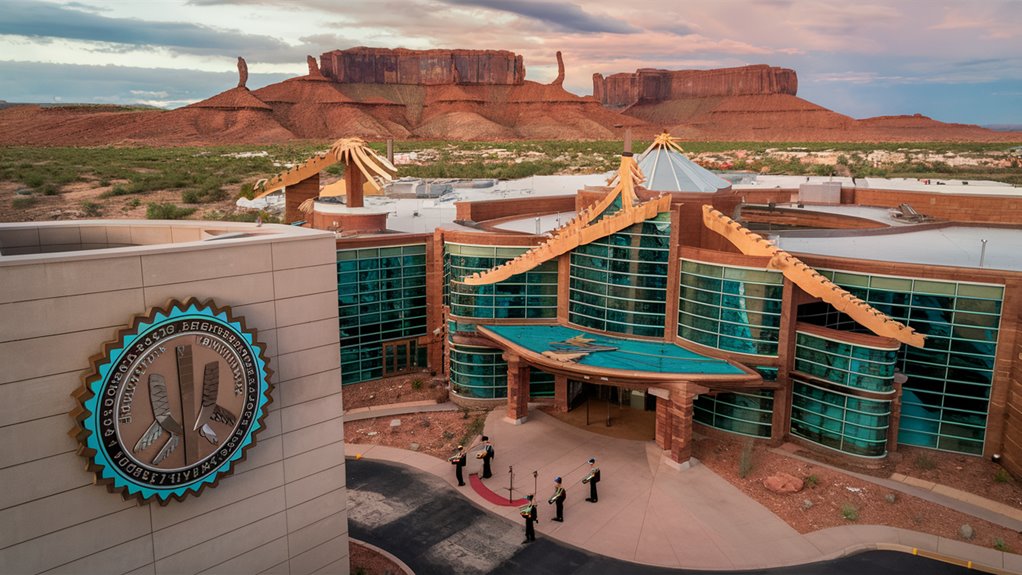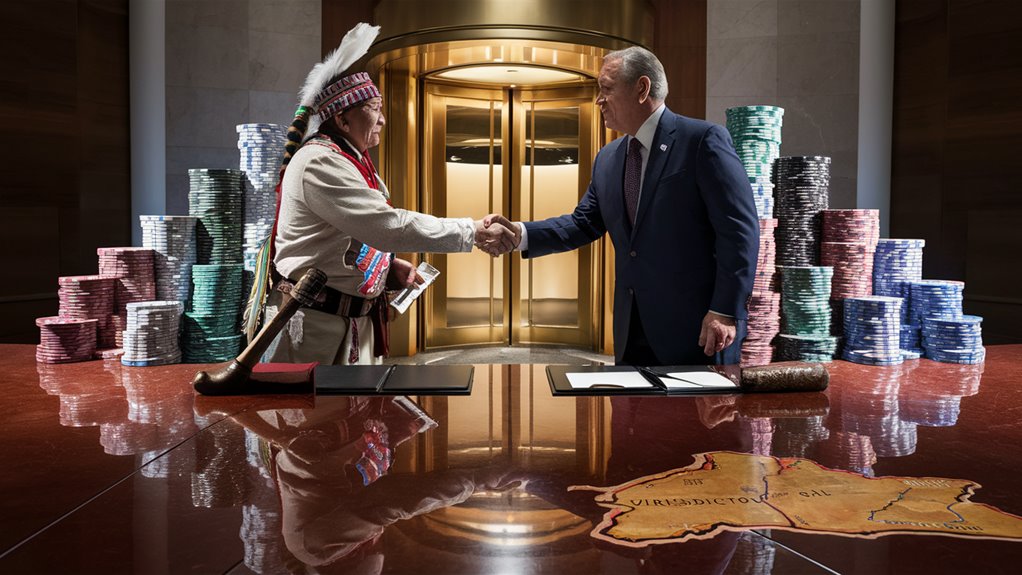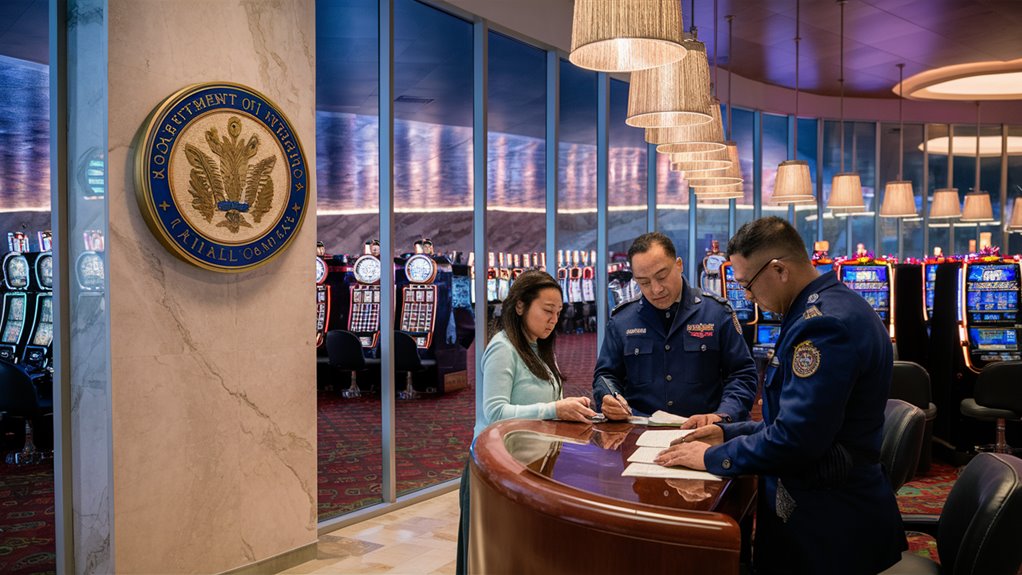
How Tribal Lands Handle Betting

Federal Game Types and Their Watch
The Indian Gaming Regulatory Act (IGRA) sets three main types of tribal gaming. Class I gaming includes old tribe games and is just for the tribes to watch. Class II gaming has bingo and some card games, watched a bit by the feds. Class III gaming is full-on casinos with slots, table games, and big bets. 먹튀검증커뮤니티
Rules and Following Them
Tribal-state deals are key for Class III games, making plans for how money is shared, usually 10-25% of the cash made. The National Indian Gaming Commission (NIGC) makes sure tribes follow the rules. Casinos need to have good control setups, top watch tech, and check the backgrounds of all main staff.
How They Keep Things Safe and Right
Today’s tribe gaming spots keep to tough safety rules and checks. Main parts include:
- Top electronic watch systems
- Strict cash rules
- Money checks often
- Checks on staff past
- Steps against money laundering
- Safe gaming plans
As tech and markets grow, the rules keep changing to keep tribe gaming top-notch safe and right.
About the Indian Gaming Regulatory Act (IGRA)
Class I Gaming: Old Tribe Ways
Old tribe games and fun games are Class I. They don’t give big prizes and are very tied to culture.
Tribe leaders watch Class I gaming by themselves, with no need for fed checks.
Class II Gaming: Bingo and Cards
Class II games include:
- Bingo
- Pull-tab games
- Punch boards
- Some card games
The National Indian Gaming Commission (NIGC) must okay gaming rules and big contracts for Class II.
Class III Gaming: Like Big Casinos
Class III gaming is the full set, including:
- Slots
- Blackjack tables
- Craps
- Roulette
RULES FOR Class III
Deals between tribes and states are needed that:
- Set the rules
- Share money
- Decide who watches what
These deals must get a thumbs up from the Secretary of Interior, and tribes need OK’d gaming rules from NIGC.
If a state won’t talk fair, tribes can go to court.
About Tribe-State Gaming Deals
Law and Why It Matters
Tribe-state gaming deals are must-have legal papers for Class III gaming on tribe lands.
They lay the base for tribe gaming while making sure rules are met and both sides work together.
What’s in the Deals
Deals must look at several key parts:
- What games are ok
- Basic control rules
- Who needs a license and how
- Who checks on things
- How money is shared
- Rules on who can do what
Money Talks and State Ties
While states can’t tax tribe games, they can talk out money share plans for good things for tribes.
This must help the tribes enough to stick to fed rules.
Talking and Solving Issues
Fed safety lets tribes fight if states won’t talk fair. This includes:
- Going to fed court
- Talking it out
- Step in by the Secretary of Interior if needed
- Setting gaming rules if talking fails
How Long Deals Last and Saying Yes
Gaming deals normally last:
- 20-25 years
- Chances to change it
- Options to make it last longer
- A must-have OK from the Department of Interior
- Fed checks
Fed Watch on Tribe Gaming

The Power of the National Indian Gaming Commission (NIGC)
The National Indian Gaming Commission keeps a close watch on tribe gaming while honoring their independence.
The NIGC does important things like checks on following rules, telling about rule breaks, and can fine for not following the Indian Gaming Regulatory Act (IGRA).
Keeping Right and Watching
Tribe gaming groups work with NIGC to set up strong control systems, check licenses well, and make sure game money is reported right.
The group can close places down if they see risks to safety or fair play.
Watch by Department of Interior
The Office of Indian Gaming Management in the Department of Interior has big jobs like:
- Saying yes to tribe-state gaming deals
- Checking if tribes follow IGRA
- Seeing if they stick to tribe laws
Feds Keeping Safe from Crime
Fed safety plans focus on:
- Stopping bad acts
- Making sure games are fair
- Keeping tribe game money safe
- Working with FBI and tribes
- Having a say on wrong acts on tribe lands
This full watch makes sure things stay right and keep tribes in charge within set laws.
Knowing Tribe Game Types and Rules
Class I Gaming: Old and Fun Games
Old tribe rites and fun games are Class I, just under tribe watch.
These have small prizes and big meaning, no need for fed watch.
Class II Gaming Stuff
Class II gaming has a bunch of well-liked types:
- Bingo
- Pull-tab games
- Punch board fun
- Some card games
These need a yes from both tribe leaders and the National Indian Gaming Commission (NIGC), apart from state-tribe deal needs.
Players go up against each other, not the house.
Class III Gaming: Like Big Casinos
Class III gaming is the big deal, including:
- Slots
- Blackjack tables
- Craps fun
- Big casino shows
This type needs state-tribe deals that set:
- Ok game types
- Money share deals
- Who watches what
- How things run
Rules and Sticking to Them
Game limits are there for all kinds, covering:
- Bet caps
- Prize rules
- When they can open
- Watch steps
Places must keep watch tech that meets fed needs, while sticking to state bans on some games.
The rules make sure gaming is done right, with many watching and strict need to follow rules.
Talking Money in Gaming Lands
Knowing Deals on Tribe-State Gaming Money
Money share deals between tribe gaming spots and state lands lay out money ties between free lands.
These set money share ways needing tribes to give set parts of gaming cash for being the only ones in an area and rule nods.
Cash Split and Share Sizes
The usual money share way needs tribes to give 10-25% of clean gaming cash to state leaders. Key parts include:
- State-set share sizes by deal
- Paying more as more money comes
- Changes if the market shifts
Laws and Must-Dos
The Indian Gaming Regulatory Act (IGRA) sets the base for how tribes and states talk on gaming. It doesn’t make them share money but sets lines for:
- Talking out state-tribe deals
- Who has to watch
- Checking by Department of Interior
- Needs for real trade
Where Money Goes
State gaming cash pools take and spread shared money by set plans. Key spots for the cash include:
- Rules work
- Helping with gambling issues
- Local area building
- Lessening community hits
- Watching costs
Money Win-Wins
The money-sharing setup makes good for both through:
- Steady cash for state plans
- Chances for area growth
- Better public help
- Pushing economic lifts
These talks keep changing as markets and needs shift, staying in line with fed watching needs.
A Full Look at Tribal Gaming Commission Jobs
Being in Charge and Setup
Tribal gaming boards are their own rule groups within Native lands, under both tribe freedom and fed watch.
They set up strict license rules, dig deep into pasts, and stick hard to tribe gaming laws.
Watching How Things Run
Game Checker Jobs
Tribal game checkers watch casinos all the time, making sure they follow tech and rule needs. Main jobs include:
- Checking slot and table game gear
- OKing game devices
- Watching cash moves
- Keeping an eye on rule following
Who Leads
Tribe councils pick commissioners who serve set spans to keep rule freedom. These leaders:
- Set full work plans The Risks of Online Gambling and How to Avoid Them
- Do deep game checks
- Work with the National Indian Gaming Commission (NIGC)
Steps for Safety and Rules
Top Watch Tech
Commissions use smart watch setups and set:
- Inside rules
- Player block plans
- Fixing fights
- Keeping things safe
Staying on Top of Rules
The rule setup at the commission includes:
- Live game watching
- Checking tech is right
- Watching money moves
- Keeping players safe




